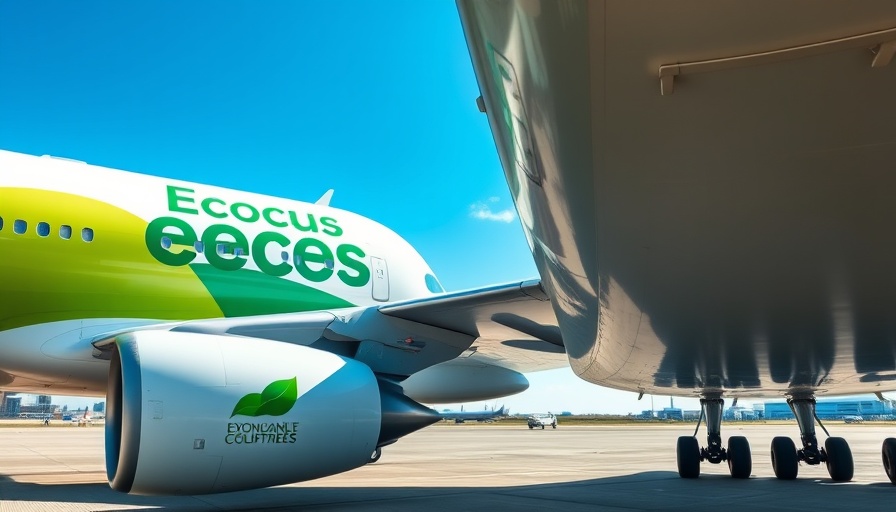
The Push for Sustainable Aviation Fuel in Asia
The aviation industry plays a significant role in global emissions, accounting for 2.5% of energy-related carbon emissions as of 2023. However, as the world increasingly recognizes the importance of sustainable practices, the need for sustainable aviation fuel (SAF) becomes clearer. Despite efforts to ramp up production, demand within Asia has fallen behind. In response to this gap, Temasek-owned GenZero and the World Economic Forum have joined forces to launch a novel initiative in Singapore called the Green Fuel Forward.
Grassroots Coalition to Combat Emissions
The Green Fuel Forward initiative is all about collaboration. It brings together airlines, logistics providers, and corporations to create a unified approach to adopting green jet fuel within the aviation sector. By introducing the concept of SAF credits—each symbolizing one metric ton of SAF—the initiative intends to allow businesses outside the aviation industry to contribute to reducing their carbon footprint. This innovative “book and claim” system promotes a more flexible way for companies to offset their Scope 3 emissions tied to various activities, including business travel.
As GenZero’s CEO Frederick Teo explains, the longer-term goal is increasing demand for SAF by reducing its cost through creative financing mechanisms. Teo’s insightful observation indicates that high uptake of SAF credits can motivate producers to invest in the production of sustainable fuels, establishing a feedback loop that could significantly alter the trajectory of aviation fuel consumption.
Cost Challenges and Policy Gaps
One of the major hurdles for the widespread adoption of SAF is its price. Currently priced at approximately $2,500 per ton, this green fuel is costly compared to traditional jet fuel. This high cost, compounded with the absence of uniform policies regarding SAF usage in Asia, has led to fragmented demand among airlines that have primarily focused on resuming services post-pandemic.
A Comparative Overview: Asia vs. Europe
Europe has set the standard with regulations requiring airlines operating from EU and UK airports to utilize 2% SAF. In contrast, Asia’s policies lag behind, with Singapore and Thailand only committing to a 1% SAF mandate starting in 2026. This disparity raises questions about the region's transition to a greener aviation sector. The recent implementation of a ticket levy in Singapore to increase SAF demand demonstrates a forward-thinking approach to balancing corporate needs against environmental responsibilities. It’s a bold model that prioritizes sustainable consumption while minimizing burdens on consumers and carriers alike.
Bridging the Gap through Innovation
Through the Green Fuel Forward initiative, Asia is at a critical juncture—pushing for innovations in SAF utilization while emphasizing the importance of corporate responsibility. This coalition is not only about reducing emissions; it is also about paving the way for a future where renewable energy becomes the norm in aviation and beyond. With growing awareness of climate change and social responsibility, the combination of public-private partnerships becomes vital in driving green initiatives forward.
A Collective Future: What Can You Do?
As eco-conscious readers, it’s essential to engage with these developments and consider personal and corporate practices that contribute to a greener planet. Through initiatives like Green Fuel Forward, we can reflect on our own consumption habits and explore ways to support sustainable businesses. Whether through advocacy, investing in green technology, or supporting renewable resources, these actions collectively move us towards a more sustainable future.
The benefits extend beyond mere compliance; they foster innovation and a sense of social responsibility in the broader community. Understanding these developments is crucial as we transition into an era of green living and eco-friendly products.
Join the Movement
Are you ready to play an active role in shaping a sustainable future? The time is now to advocate for and invest in sustainable practices that can help realize the promises of initiatives like Green Fuel Forward. By making conscious choices and supporting eco-friendly solutions, we can collectively work towards reducing our ecological impact and preserving our planet for future generations.
 Add Row
Add Row  Add
Add 



Write A Comment